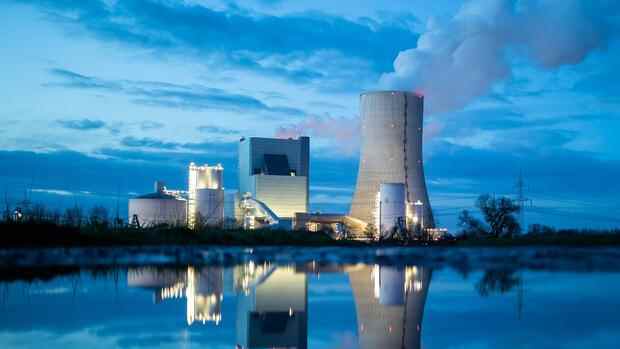Before the meeting, there was agreement that there should be further relief for the prices for fuel, gas and electricity, which had risen sharply again as a result of the Ukraine war.
(Photo: dpa)
Berlin The heads of the traffic light coalition of SPD, Greens and FDP have agreed on a second relief package for energy costs. The news agencies dpa and Reuters learned this on Thursday morning from coalition circles. The results should be published in the morning. The negotiations in the Chancellery lasted almost eleven hours. Details were not initially communicated. The coalition has also agreed on measures to strengthen “energy independence”.
The party and parliamentary group leaders met with Chancellor Olaf Scholz (SPD) on Wednesday evening. Before the meeting, there was agreement that there should be further relief for the prices for fuel, gas and electricity, which had risen sharply again as a result of the Ukraine war.
But there were differences about the instruments. However, a push by FDP leader and Finance Minister Christian Lindner for a fuel subsidy met with resistance from the coalition partners. SPD and Greens also want to make mobility cheaper, but at the same time relieve people with low incomes more.
The Greens are also pushing for measures to save energy. The proposal for a temporary mobility allowance of up to 50 euros a month, graded according to income, was made known by SPD Vice Hubertus Heil in the Ministry of Labor.
Top jobs of the day
Find the best jobs now and
be notified by email.
Economics and Climate Protection Minister Robert Habeck (Greens) had called more efforts to save energy as a condition for a relief package. For example, he had described gas heaters as a “discontinued model”.
Reduce dependency on gas, oil and coal from Russia
The German government’s aim is to reduce dependence on gas, oil and coal from Russia in view of the Russian war of aggression against Ukraine. The federal government rejects an energy embargo.
A coalition working group had previously failed in several rounds to reach an agreement on relief in response to rising prices. However, a “broad basis” has been developed not only for new relief, but also for decisive measures to strengthen energy independence, it said.
The deliberations are likely to be complicated by the surprising announcement by Russian President Vladimir Putin that Russian gas deliveries will in future be paid for in rubles. Habeck called the announcement a breach of the contracts. The federal government will discuss the step with its European partners. The gas industry was irritated.
More: The great bargaining – How companies deal with the energy price shock
